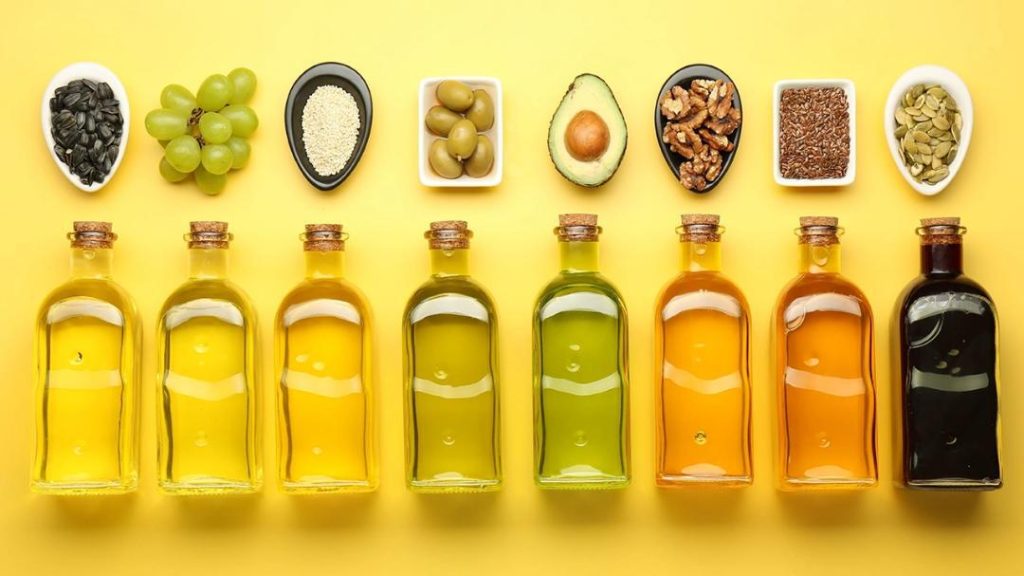
What do Experts Say about Health Hazards & Benefits of Seed Oils?
Seed oils, which are extracted from seeds such as flax, sunflower, and canola, have been a topic of debate in recent years due to their perceived health risks. Critics claim that these oils contain toxic byproducts of hexane, a chemical considered hazardous in gaseous form. However, experts in the field of food science have come forward to debunk these myths and reveal the science behind seed oils.
According to a recent article published in Hindustan Times, Massachusetts University Food Science Professor Eric Decker stated that the residue of hexane in seed oil is not dangerous. Decker explained that the amount of hexane residue in seed oil is extremely low and is not a cause for concern. In fact, the Food and Drug Administration (FDA) allows for a certain level of hexane residue in seed oils, as long as it is within the approved limits.
Another expert, an Ohio University Food Science professor, also weighed in on the issue. “Seed oils don’t increase acute or chronic inflammation markers,” he said. This is significant, as inflammation is a major risk factor for chronic diseases such as heart disease, diabetes, and cancer.
So, what are seed oils and what are their benefits? Seed oils are a type of vegetable oil that is extracted from seeds such as flax, sunflower, and canola. They are rich in unsaturated fatty acids, which are beneficial for heart health. Unsaturated fatty acids can help to lower cholesterol levels and reduce the risk of heart disease.
One of the primary benefits of seed oils is their high levels of omega-3 and omega-6 fatty acids. These essential fatty acids are important for maintaining heart health and reducing inflammation. Omega-3 fatty acids, in particular, have been shown to have anti-inflammatory properties and can help to reduce the risk of chronic diseases such as heart disease and cancer.
Seed oils are also a good source of antioxidants, which are important for protecting against oxidative stress and inflammation. Antioxidants can help to neutralize free radicals, which are unstable molecules that can damage cells and contribute to chronic diseases.
In addition to their health benefits, seed oils are also a more sustainable and environmentally friendly option than other types of vegetable oils. They require less land, water, and energy to produce than other types of oil, making them a more sustainable choice for consumers.
Despite their benefits, seed oils have been criticized for their perceived health risks. Some critics claim that they contain toxic byproducts of hexane, a chemical considered hazardous in gaseous form. However, experts such as Professor Decker and the Ohio University Food Science professor have come forward to debunk these myths and reveal the science behind seed oils.
In fact, the FDA has strict guidelines in place for the production and processing of seed oils to ensure that they are safe for consumption. The agency requires that seed oils be extracted using a process that minimizes the use of hexane and other chemicals. Additionally, the FDA sets limits on the amount of hexane residue that is allowed in seed oils.
So, what can consumers do to ensure that they are getting the benefits of seed oils while minimizing their risks? Here are a few tips:
- Choose high-quality seed oils that are extracted using a minimal amount of hexane and other chemicals.
- Look for seed oils that are certified by organizations such as the Non-GMO Project or the USDA Organic program.
- Use seed oils in moderation, as they are high in calories.
- Choose seed oils that are rich in omega-3 and omega-6 fatty acids, as these are the most beneficial for heart health.
In conclusion, seed oils are a nutritious and sustainable option for consumers. While some critics have raised concerns about their perceived health risks, experts in the field of food science have come forward to debunk these myths and reveal the science behind seed oils. By choosing high-quality seed oils and using them in moderation, consumers can reap the benefits of these nutritious oils while minimizing their risks.






